And just like those illnesses depression is not something a person can snap out of Its believed that a combination of genetic biological environmental and psychological factors cause depression. While serotonin dopamine and norepinephrine have long been considered the big three neurotransmitters involved in depression recent research suggests that what causes depression may be more complicated than just having not enough or too much of these neurotransmitters in certain parts of the brain.
Other chemicals called hormones may affect the delicate balance of chemicals in the brain.
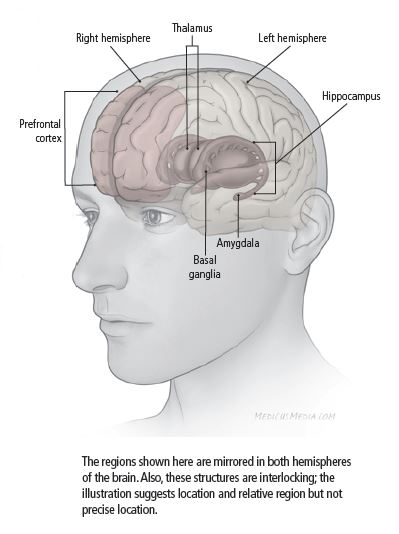
What chemical in the brain causes depression. Activity in the amygdala is higher when someone experiences depression. A chemical for motivation Reduced dopamine levels too may contribute to depression. Many researchers believe that early trauma causes subtle changes in brain function that account for symptoms of depression and anxiety.
Depression is Partially a Chemical Imbalance. The key brain regions involved in the stress response may be altered at the chemical or cellular level. Like the hippocampus it is sensitive to consistently high levels of cortisol.
It is known for example that individuals with major depressive illness typically have dysregulation of certain brain chemicals called neurotransmitters. Too little or too much of these important neurotransmitters may be released and cause or contribute to depression. Cortisol and memory.
Forest Pharmaceuticals state on their website that research indicates the cause of depression is a chemical imbalance most notably serotonin imbalance. Schildkraut suggested norepinephrine was the brain chemical of interest for depression when he presented the catecholamine hypothesis of mood disorders. When your brain gets flooded with cortisol for long periods of time it can slow or stop the growth of new neurons in the hippocampus.
For example researchers point out that if depression were solely due to chemical imbalances treatments that target neurotransmitters such as selective serotonin reuptake inhibitors. Since the late 1980s we were told that anxiety disorder depression and many other mental illnesses were caused by a chemical imbalance in the brain. However further investigation is needed to clarify the.
There are several chemical reactions going on in your brain at any given point in time. Many people believe that mental illness is caused by a chemical imbalance in the brain with one survey finding that about 80 percent believe that depression is due to some sort of chemical. A cellular factor produced in response to the brain not getting enough oxygen hypoxia is elevated in specific immune cells found in people with major depressive disorder and bipolar disorder.
Some of the neurotransmitters believed to be linked to depression are serotonin norepinephrine and dopamine. However the causes of this imbalance are not clearly known. Evidence indicates that brain biochemistry is a significant factor in depressive disorders.
Schildkraut proposed depression occurred when there is too little norepinephrine in certain brain circuits. The potential relationship between depression and hormones focuses on 3 main areas. It was claimed that mental illness including anxiety disorder was caused by an imbalance of neurotransmitters in the brain.
Depression is a real illness just like diabetes or heart disease. However the role that brain chemistry plays in depression is significant. Neurotransmitters are chemicals that carry signals to.
Depression medication controls depression by increasing amounts of different brain chemicals like serotonin norepinephrine and dopamine. Part of the brain called the hippocampus releases the hormone cortisol when youre stressed which includes episodes of depression. Although dopamine was thought initially to be crucial to the reward system in the brain and the neurons that control feelings related to pleasure it more directly.
Examples include norepinephrine and serotonin. In addition they assert Lexapro an antidepressant is thought to work by restoring the brains chemical balance Jarrett 2015. They never indicate what exactly that balance is.
In the 1960s Joseph J. Chemical changes in the brain may contribute to the symptoms of the disease. For instance the imbalance of serotonin in your brain can cause depression.
Someone with depression often has an imbalance of neurotransmitters. The fight-or-flight response the thyroid hormones and the sex hormones. Changes might include fluctuations in the concentration of neurotransmitters or damage to nerve cells.
The amygdala is a structure deep within the brain that is associated with certain emotions such as sorrow fear anger and pleasure. Neurotransmitters are natural chemicals that help ease the communication between your nerve cells. Depression is biological and largely brain-based.
These chemical reactions affect your mood.
Institute For Nearly Genuine Research Depression Simplified

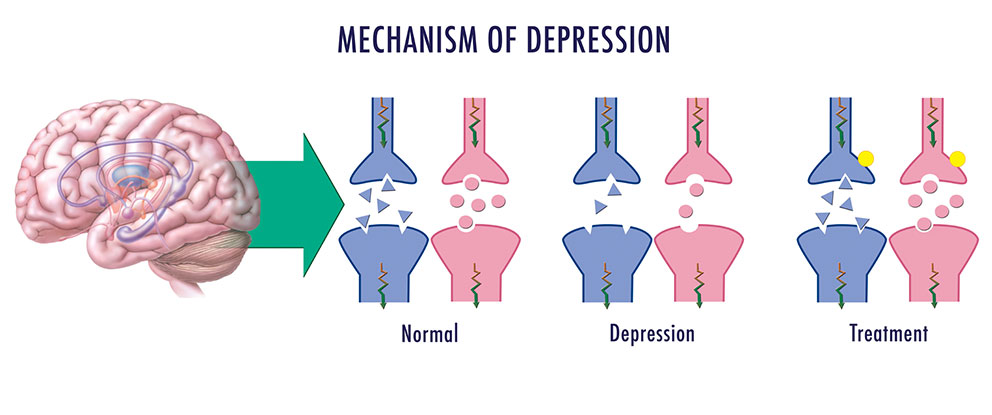 Happy Or Sad The Chemistry Behind Depression
Happy Or Sad The Chemistry Behind Depression
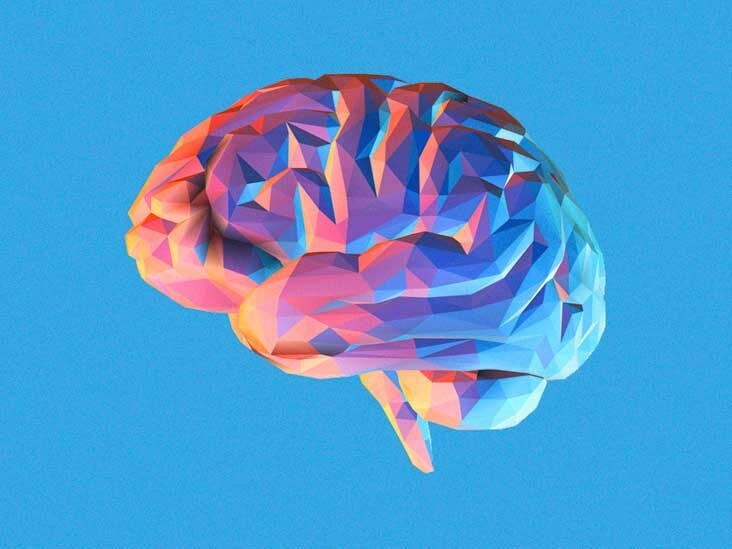 Chemical Imbalance In The Brain
Chemical Imbalance In The Brain
 What Causes Depression Harvard Health
What Causes Depression Harvard Health
 My Illness Is Not A Theory Emmagc75 S Blog
My Illness Is Not A Theory Emmagc75 S Blog
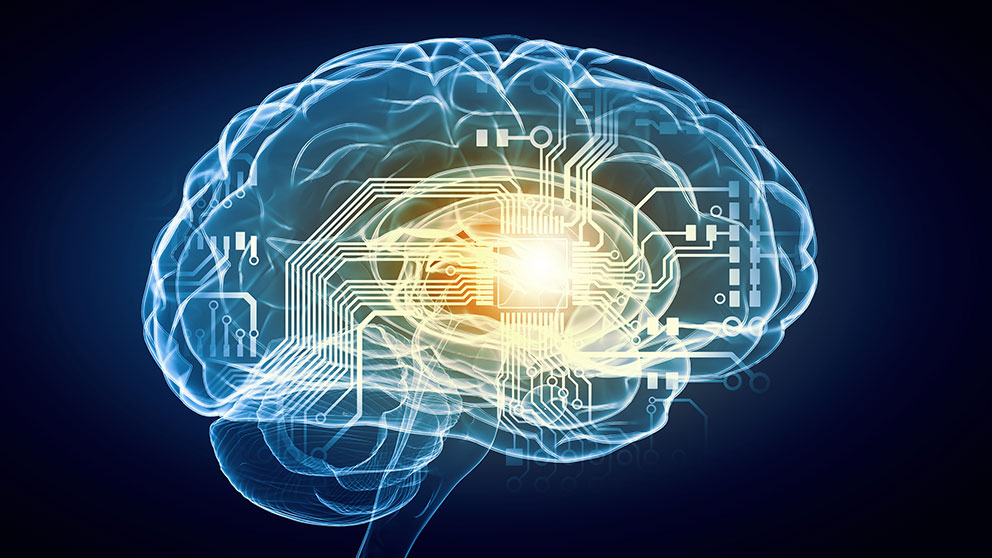 Happy Or Sad The Chemistry Behind Depression
Happy Or Sad The Chemistry Behind Depression
 The Science Of Depression Part Two The Brain Cbt Psychological Associates
The Science Of Depression Part Two The Brain Cbt Psychological Associates
 What Causes Depression Harvard Health
What Causes Depression Harvard Health
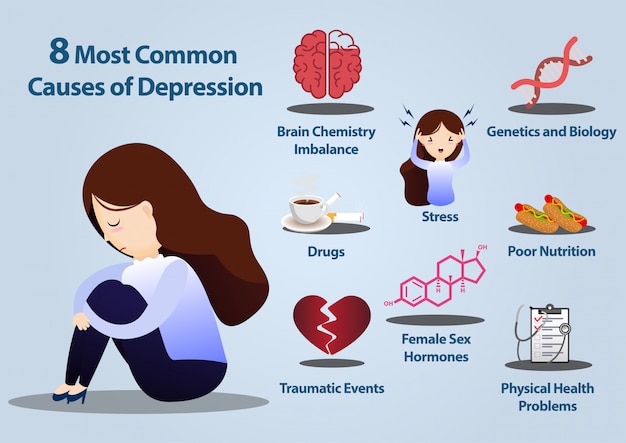 Premium Vector 8 Common Causes Of Depression Infographics
Premium Vector 8 Common Causes Of Depression Infographics
/the-chemistry-of-depression-1065137_final_logo-d18c69cd1a814e36bace2244ac3a0f2a.png) The Chemistry Of Depression Neurotransmitters And More
The Chemistry Of Depression Neurotransmitters And More
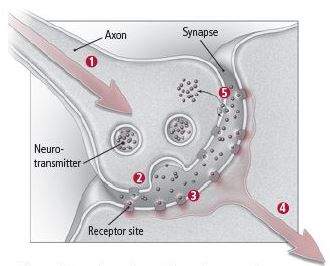
 11 Causes Of Depression Flow Neuroscience
11 Causes Of Depression Flow Neuroscience
/1066772-common-causes-of-depression-5ae727a7875db900375789d5.png) Depression Causes And Risk Factors
Depression Causes And Risk Factors


No comments:
Post a Comment
Note: Only a member of this blog may post a comment.